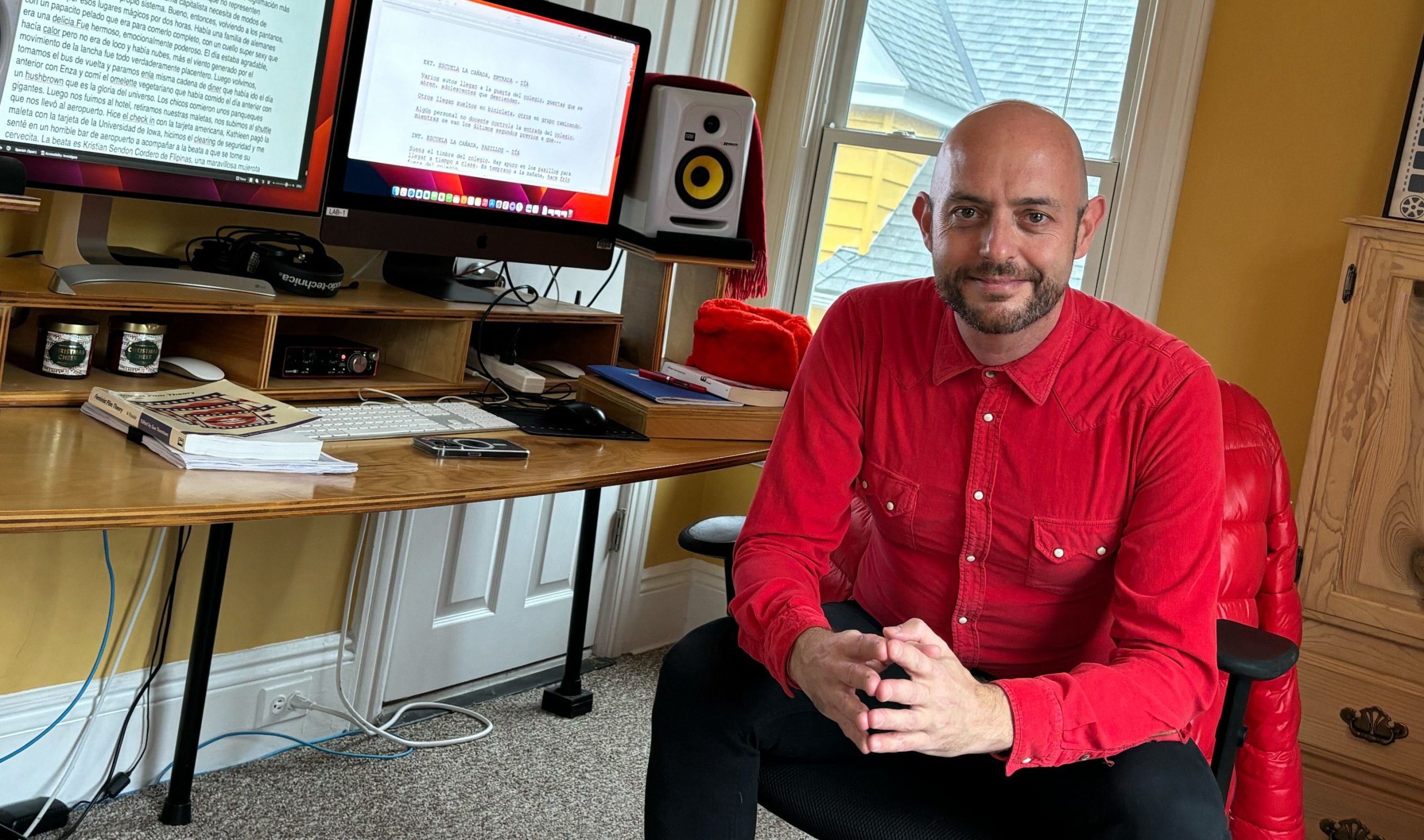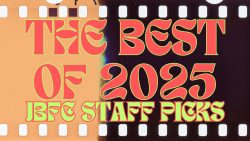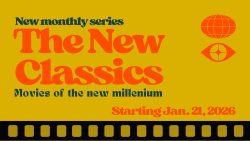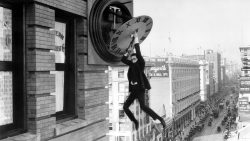Posted March 13, 2024
Artist-in-Residence: Santiago Giralt
As a part of our ongoing interviews with Artists-in-Residence at the Jacob Burns Film Center, we recently caught up with Artist-in-Residence—Santiago Giralt—to talk about his current work.
1. How did this residency come about, and how did you learn about the Burns?
2. Can you tell us a bit about the film you are working on during your residency?
In this version of the Diaries, (previously a movie and some written work) I wanted to go back to my childhood years. In 1983, the year I started school, democracy came back to Argentina. It was a great moment for human rights and left a big mark on me. That was the country I was born into and it haunts me how it has turned into the version of Argentina that I left today. The pain pushes me to go back and identify when it all went down this way. The soundtrack will include a voiceover based on all the research I have done on the theme.
3. What are some of the most interesting things you’ve learned while working on your film?
The vision of a film comes, as a screenwriter as well as a filmmaker, a long time before the movie is finished. It’s a vibration from the brain that becomes an idea and I find that quite marvelous. There is a feeling of excitement when you realize that you have created something out of nothing. A movie involves so many aspects and helps create jobs, images, ideas, opportunities, connections. I’ve also learned to be patient because projects have a mysterious inner life. I’ve learned to believe in my vision as it has often translated to movies or books or plays, against all odds. I’ve learned to stick to my vision, to believe in myself, to not take no for an answer, and to be insistent! It has also taught me the successful path of failure. I love the oxymoron that clearly explains how when you “fail” in art, you have a door open for your next “success”.
4. What do you want viewers to learn from your film?
In my films, I always expect to have at least one moment that resonates with the viewer. It might be a feeling, impression, intellectual opinion, or a strong disagreement with what he or she or they saw in my film. I’ve done big and small movies under the “comedy” label, but I see a very deep pain in all my movies with tears hiding behind the laughter. I think comedy is more than a genre—it’s a beautiful approach to life and it helps me spot the humor even in the most painful moments. I think that’s the basic twist of comedy, a situation that in a “drama” style is painful to watch but made you laugh (or at least smirk) in a comedy.
5. If you had not had this opportunity, how you would you go about completing your film project?
Queer Diaries is my passion project. It’s an autobiographical and historical approach to my experience as a human being in this world. Such types of projects cannot exist without the type of support the JBFC offers. The support from film centers like this give you the time and the space to really create without the boundaries of the industry with time, space, and the possibility to go really deep into your creative process. You have a haven (a beautiful house), a quiet ambience, and access to great programming of films to inspire yourself… it’s quite a filmmaker’s paradise!
6. Which filmmakers or artists do you most admire/draw inspiration from?
So many, but I’ll try to list them… Todd Haynes has been a big influence for a long time. I find his approach to film and chameleonic style very attractive. Others include Cassavettes, Almodóvar, Ozu, Buñuel, Fassbinder, and Ripstein. However, at the centre of my cinephile universe is Douglas Sirk and his brilliant observation of suburban neurosis. His focus on housewives and career girls who suffer the consequences of wanting something more than what heaven allows is fascinating to me. Sirk is one of those influences I can’t easily shake off and I think he had an impact on Almodovar, Fassbinder, and Haynes as well. He was a master of framing with mirrors, shadows, reflections, windows, and patterns. Another big influence on me is Cassavettes. He was a powerful filmmaker who showed how it was possible to make a movie without all the Hollywood paraphernalia, only driven by great acting and a smart production concept.
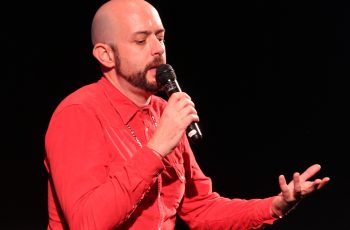
Santiago Giralt is a prolific, multidisciplinary artist: a novelist, filmmaker, screenwriter, playwright, stage director, actor, and producer. His diverse body of work deals with LGTBQ themes, women’s rights, the construction of family and memory. As a filmmaker, Giralt has written and directed more than a dozen films, screening at international film festivals and streaming across global content platforms. Some of the main titles are Before Opening Night, Jess & James, Here Kitty Kitty, Queer Diaries and the successful indie comedy saga upa! His last film Norma was released on cinemas in October 2023. He lives between Argentina and Greece.
